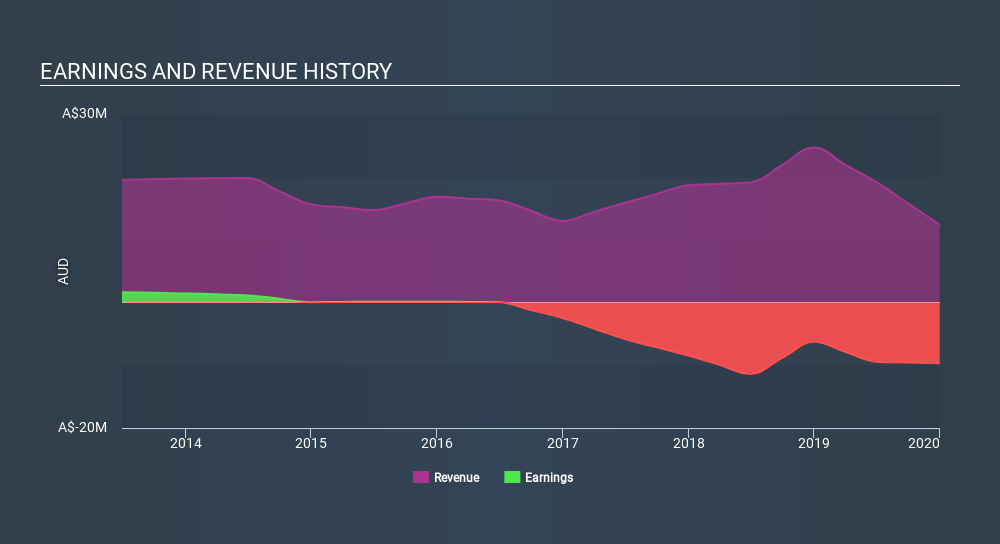Those Who Purchased DTI Group (ASX:DTI) Shares Five Years Ago Have A 95% Loss To Show For It
We're definitely into long term investing, but some companies are simply bad investments over any time frame. We don't wish catastrophic capital loss on anyone. For example, we sympathize with anyone who was caught holding DTI Group Limited (ASX:DTI) during the five years that saw its share price drop a whopping 95%. And some of the more recent buyers are probably worried, too, with the stock falling 62% in the last year. Shareholders have had an even rougher run lately, with the share price down 13% in the last 90 days. However, one could argue that the price has been influenced by the general market, which is down 25% in the same timeframe.
We really feel for shareholders in this scenario. It's a good reminder of the importance of diversification, and it's worth keeping in mind there's more to life than money, anyway.
View our latest analysis for DTI Group
DTI Group wasn't profitable in the last twelve months, it is unlikely we'll see a strong correlation between its share price and its earnings per share (EPS). Arguably revenue is our next best option. Shareholders of unprofitable companies usually expect strong revenue growth. That's because it's hard to be confident a company will be sustainable if revenue growth is negligible, and it never makes a profit.
Over five years, DTI Group grew its revenue at 5.0% per year. That's far from impressive given all the money it is losing. It's not so sure that share price crash of 44% per year is completely deserved, but the market is doubtless disappointed. We'd be pretty cautious about this one, although the sell-off may be too severe. A company like this generally needs to produce profits before it can find favour with new investors.
You can see how earnings and revenue have changed over time in the image below (click on the chart to see the exact values).

You can see how its balance sheet has strengthened (or weakened) over time in this free interactive graphic.
A Different Perspective
While the broader market lost about 15% in the twelve months, DTI Group shareholders did even worse, losing 62%. However, it could simply be that the share price has been impacted by broader market jitters. It might be worth keeping an eye on the fundamentals, in case there's a good opportunity. Regrettably, last year's performance caps off a bad run, with the shareholders facing a total loss of 44% per year over five years. Generally speaking long term share price weakness can be a bad sign, though contrarian investors might want to research the stock in hope of a turnaround. While it is well worth considering the different impacts that market conditions can have on the share price, there are other factors that are even more important. Even so, be aware that DTI Group is showing 4 warning signs in our investment analysis , and 2 of those can't be ignored...
If you are like me, then you will not want to miss this free list of growing companies that insiders are buying.
Please note, the market returns quoted in this article reflect the market weighted average returns of stocks that currently trade on AU exchanges.
If you spot an error that warrants correction, please contact the editor at editorial-team@simplywallst.com. This article by Simply Wall St is general in nature. It does not constitute a recommendation to buy or sell any stock, and does not take account of your objectives, or your financial situation. Simply Wall St has no position in the stocks mentioned.
We aim to bring you long-term focused research analysis driven by fundamental data. Note that our analysis may not factor in the latest price-sensitive company announcements or qualitative material. Thank you for reading.
About ASX:DTI
DTI Group
Develops, manufactures, and sells integrated surveillance and passenger communication systems, and fleet management solutions in Australia, Europe, North America, and internationally.
Moderate risk with mediocre balance sheet.
Market Insights
Community Narratives



